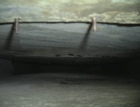Coming clean

Ventilation hygiene and energy efficiency go hand-in-hand — Gary Nicholls.
Ventilation hygiene remains a resilient market despite the slowdown in the general economy. And the reasons are not hard to find, says Gary Nicholls.A clean ventilation system is also an energy-efficient ventilation system. As Bill Harrison, President of the American Society of Heating, Refrigerating & Air Conditioning Engineers (ASHRAE) (the world’s largest professional body for building services) said on a recent visit to the UK, ‘Often the secret is simply to keep things clean. If you regularly clean fans, coils, ductwork etc. you will save huge amounts of energy.’
Our growing obsession with all things sustainable can complicate the issues and tempt people into losing sight of the basic engineering principles that lead to ideal conditions for building occupants. In fact, the secret of sustainable buildings is right under our noses — and always has been.
Bill Harrison also said, ‘We have a no-regrets method to reduce energy use in buildings by 10 to 40%, solely by improving building operations. It is tempting to just shake your head and walk away when you see some of the ridiculous things happening in buildings, but we can’t afford to do that anymore.
‘Buildings are responsible for 40% of the primary energy in the US, but this is not just about energy efficiency. It is also about creating healthy and productive indoor environments that are also energy efficient.’
Mr Harrison’s comments ring true right across the world’s building-services community. Growing awareness of the need for energy efficiency is translating into a wider understanding that building systems need to be properly managed and operated to deliver sustainable buildings — not necessarily replaced.
Also, a sustainable building is one that is safe, healthy and productive. Poor maintenance of ventilation systems leads to problems with airborne bacteria, uncomfortable humidity levels — too high or too low — and inefficient energy consumption.
Our specialist hygiene engineers at Swiftclean come across many of the things that Mr Harrison referred to that make you want to shake your head and walk away. However, like him, we take our responsibilities seriously and roll our sleeves up and get on with tackling them. And, whether there is a credit crunch or not, these things will not go away.
For example, local authorities are turning to companies like ours more and more as they struggle to get residential and public access premises up to scratch. We come across a multitude of problems in ventilation systems that can lead to serious indoor-air-quality (IAQ) problems.
For example, the accumulation of deposits in bathroom and toilet extract ducting, including paper dust from toilet paper, talcum powder, human skin flakes and fibres/lint from towels and freshly washed clothing, all create an unhealthy cocktail.
Such deposits are not an overnight build up. They will have formed over a number of years, causing the relatively small air passages of the extraction systems to become ever more restricted until in severe cases they will be completely blocked.
Councils often do not know where to begin, as the problems are so involved. We recommend starting with a survey, which involves putting CCTV cameras down risers and through ductwork to see what is going on. Having established what the problem is, we set about replacing ventilation fans, cleaning the ductwork, fitting new grilles etc.
We also make sure the system is better balanced, so airflow is more evenly spread throughout the building. This reduces the chance of condensation building up and leading to smells and toxic mould along with many of the respiratory health problems associated with poor air quality.
However, getting proper access to carry out cleaning can be a real headache. Most of the installed systems we survey do not have anything like enough access doors in place. It does not take a genius to work out that if access for maintenance was not addressed at the design stage, the system has probably never been cleaned properly.
In most cases, the solution is for the hygiene contractor to put the access doors in himself to get at the blockages or dirty sections of ductwork — which can be expensive and disruptive for the end user.
Key components of ventilation supply systems that are particularly prone to rapid build up of harmful airborne deposits include air intake duct/plena, air-handling units/plant, heat-transfer coils (particularly wet coils), humidifiers and surrounds, fan-coil units, fire dampers, internal insulation, floor/ceiling plena, induction units and filters.
A thorough approach is absolutely essential, but some maintenance firms will issue cleaning certificates even if they have only carried out a partial clean. This is not good practice. End users should ensure they are using competent hygiene maintenance firms which can provide proper evidence of their skills and give the user proof they have carried out a full, deep clean.
The Heating & Ventilating Contractors’ Association (HVCA) provides a Guide to Good Practice (TR/19) ‘Internal cleanliness of ventilation systems’. It gives comprehensive information about how ventilation systems should be cleaned and how to set up a planned hygiene maintenance programme.
This guide should be used as the basis for any remedial and on-going maintenance programme to ensure ductwork provides an acceptable level of ventilation and removes both health and fire risks.
This is not rocket science. Much of it is the application of common sense — but it is a fundamental issue that goes right to the heart of making a building fit for purpose and, also, sustainable.
Gary Nicholls is managing director of building-services hygiene specialist Swiftclean.

Deposits in ductwork do not build up overnight, indicating long periods without cleaning.
Related links:
Related articles:




